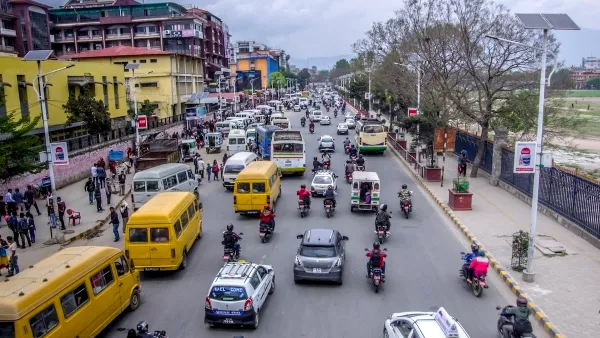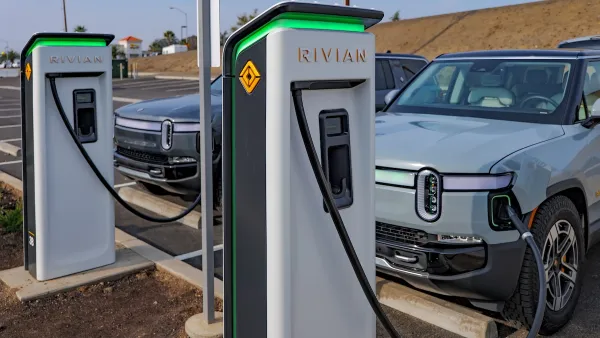Lauren Gravitz describes an unconventional solution to combat climate change, encouraging "countries with means" to "buy up coal, oil, and other deposits while they’re still in the ground--then leave them there."
Bard Harstad, an economist at Northwestern University, thinks that current programs aimed at combating climate change by forcing decreases in consumption are exactly the wrong way to solve the problem. According to Harstad, "The problem is that when some countries decrease their use of fossil fuels, the decreased demand leads to decreased prices. And cheaper fuel means that non-climate coalition countries--which are then buying dirty fuel at lower cost--have no incentive to invest in alternative energy technologies like solar and wind. As a result, their carbon emissions actually increase, a problem known in the field as carbon leakage."
This solution isn't as off-the-wall as it may initially seem. A similar model has been employed to good effect for protecting tropical rain forests. "The World Bank, together with the United Nations, created their REDD program--Reducing Emissions from Deforestation and Forest Degradation--which, by offering money and other incentives to developing countries in return for the preservation of their forests, created a financial value for the carbon contained in the forested land."
Harstad believes that retaining the value of carbon fuels but keeping them contained underground is a cost effective route [PDF] to combating climate change, and one worth taking.
FULL STORY: To Combat Climate Change, Buy More Coal

Planetizen Federal Action Tracker
A weekly monitor of how Trump’s orders and actions are impacting planners and planning in America.

Restaurant Patios Were a Pandemic Win — Why Were They so Hard to Keep?
Social distancing requirements and changes in travel patterns prompted cities to pilot new uses for street and sidewalk space. Then it got complicated.

Maui's Vacation Rental Debate Turns Ugly
Verbal attacks, misinformation campaigns and fistfights plague a high-stakes debate to convert thousands of vacation rentals into long-term housing.

In California Battle of Housing vs. Environment, Housing Just Won
A new state law significantly limits the power of CEQA, an environmental review law that served as a powerful tool for blocking new development.

Boulder Eliminates Parking Minimums Citywide
Officials estimate the cost of building a single underground parking space at up to $100,000.

Orange County, Florida Adopts Largest US “Sprawl Repair” Code
The ‘Orange Code’ seeks to rectify decades of sprawl-inducing, car-oriented development.
Urban Design for Planners 1: Software Tools
This six-course series explores essential urban design concepts using open source software and equips planners with the tools they need to participate fully in the urban design process.
Planning for Universal Design
Learn the tools for implementing Universal Design in planning regulations.
Heyer Gruel & Associates PA
JM Goldson LLC
Custer County Colorado
City of Camden Redevelopment Agency
City of Astoria
Transportation Research & Education Center (TREC) at Portland State University
Camden Redevelopment Agency
City of Claremont
Municipality of Princeton (NJ)





























